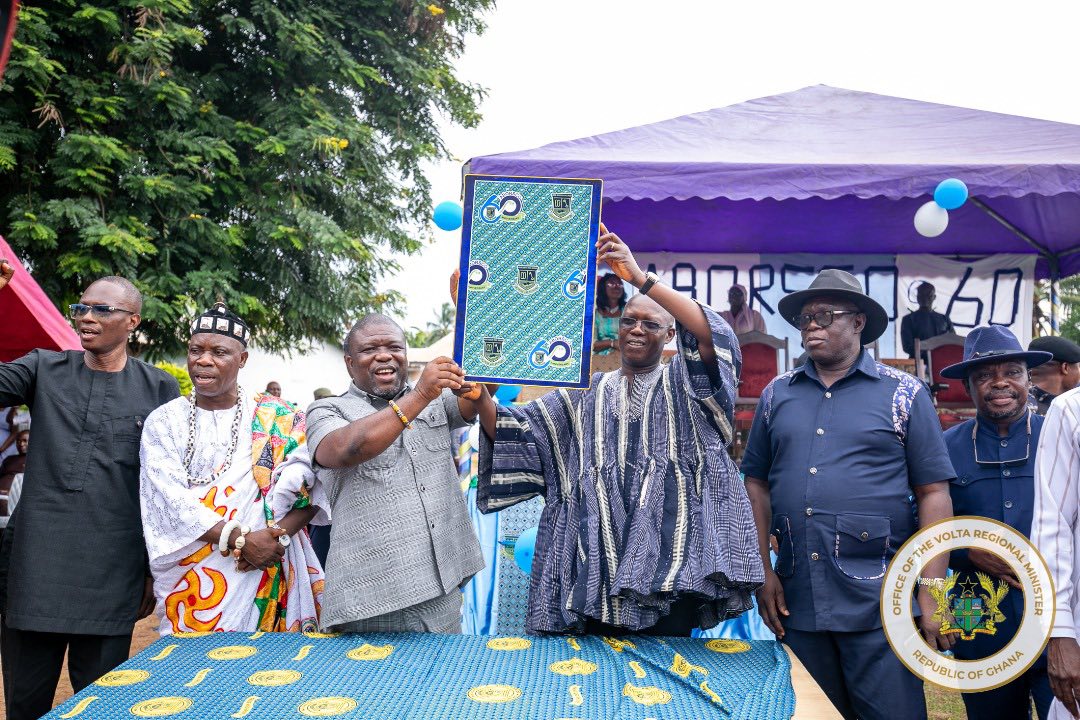“As the world celebrates this year’s “World Youth Skills Day”, our nation is using the day to recognize the importance of equipping young people with skills for employment, decent work and entrepreneurship, to highlight the strategic role of technical and vocational education and training (TVET). The day is also being used to launch the National TVET Week 2025 in Ghana”, these were words from MP for Kpado Sebastian Deh on Youth and Skills for Jobs in Ghana, in Commemoration of 2025 World Youth and Skills Day.
In a statement delivered on the floor of parliament on Tuesday, 15th July 2025 Mr. Deh called on all stakeholders, including government agencies, industry partners, development partners, and civil society organizations, to join in the celebration and continue to support on-going national efforts and strategy to promote skills development and youth empowerment, believing that “together, we can build a brighter future for Ghana’s youth and unlock their full potential”.
According to him, “these in no doubt justify the importance being given to the 24HE policy and all adjunct initiatives being pursued by government; topmost being the proposed establishment of a TVET Fund to serve as the funding impetus to generate the needed workforce and skills to feed industry and grow Ghana’s economy”.
Below is the full statement:
STATEMENT BY HON SEBASTIAN DEH, ON YOUTH AND SKILLS FOR JOBS IN GHANA, IN COMMEMORATION OF 2025 WORLD YOUTH AND SKILLS DAY (TUESDAY 15th JULY 2025)
Right Honorable Speaker, Senior Honorable Members Chairing Committees on Youth and Skills Related Matters in Parliament, Honorable Members.
I rise to make this commemorative statement on the occasion of the World Youth and Skills Day 2025, which is being celebrated today 15th July 2025.
Mr. Speaker, as the world celebrates this year’s “World Youth Skills Day”, our nation is using the day to recognize the importance of equipping young people with skills for employment, decent work and entrepreneurship, to highlight the strategic role of technical and vocational education and training (TVET). The day is also being used to launch the National TVET Week 2025 in Ghana.
Mr. Speaker, across our country various Youth and Skills related activities are being staged, key among these, the Ghana TVET Service, one of the Nation’s leading Youthful workforce development institution is using the World Youth Skills Day to mark the annual TVET Week under the theme, “Youth Empowerment through AI & Digitalization: The Role of Technology in Hands-On Skills for the Future Workforce,”
Mr. Speaker, this theme resonates deeply with the Institution’s mission to equip Ghana’s youth with the skills needed to thrive in a rapidly evolving job market.
Mr. Speaker, these headlines bring to the fore the critical contribution Skills Development in general and TVET in particular plays in the transformation of any economy and most especially that of Ghana.
Mr. Speaker, it is in the light of this that all policy measures need to be harnessed for strengthening the country’s TVET sector with a focus on industry-led, demand-driven, and competency based training.
Mr. Speaker it is worth mentioning that Ghana has in recent times made some remarkable progress in TVET enrolment from approximately 42,000 students in 2018 to over 235,000 in the 2024 academic year. This was stated by the Minister of Education at the 2025 TVET Pitso Forum in Botswana, where the critical role of human capital development in meeting the evolving demands of the modern world of work and the labor market of today.
Mr. Speaker, as we mark this significant day, as a country, we reaffirm our commitment to providing high-quality Technical and Vocational Education and Training that prepares our youth for the demands of the 21st century. By embracing technology and innovation, we can empower our youth to become leaders in their chosen fields and contribute to Ghana’s economic growth and development.
Mr. Speaker, in marking this celebration, permit me as a practicing leader, in Ghana’s TVET industry to enumerate the following achievements catalogued in TVET and Skills Development in Ghana from 2012 to date:
Mr. Speaker they include:
- Policy and Institutional Framework
- Establishment of the Commission for Technical and Vocational Education and Training (CTVET) to oversee TVET policies and programs
- The Development of the Ghana TVET Service and the provision of a framework for TVET transformation as enshrined in Act 1049 (2020), a sequel to Act 718 (2006). Indeed, these are major enactments of this parliament.
- Realignment of Technical and Vocational Institutions (TVIs) under the Ministry of Education for effective regulation, coordination and standardization of TVET delivery.
- Skills Development Initiatives
- Ghana Skills Development Initiative (GSDI) launched in 2012 to improve TVET quality and relevance of TVET; on the back of this, thousands of learners have been produced, and industrial supervisors, master craft person trained.
- Implementation of Recognition of Prior Learning (RPL) Workplace Experience Learning Learning (WEL), and deliveries done of Curriculum-Based Training programs
- Infrastructure Development
- Establishment of state-of-the-art TVET centers in each region, equipped with modern machines and training tools
- Upgrading of existing TVET institutions like Kpando, Ada, Krobea-Asante, Dabokpa, etc.
- Provision of modern laboratories and equipment to Technical Universities and Polytechnics, including Amatrol labs for hands-on skill training.
- Industry Partnerships
- Collaboration with industry partners to develop TVET curriculum and provide industry-relevant training
- Establishment of apprenticeship programs to provide hands-on experience and skills for industry.
- Partnership with industry for generating occupational standards
- Other Achievements
- Development of a National TVET Qualifications Framework to ensure quality and consistency in TVET programs
- Implementation of the TVET Voucher Project to increase access to TVET programs and promotion of private sector involvement
- institutionalization of Skills Development Fund as a pragmatic means of funding Skills and technology uptake.
Mr. Speaker, with these serving as a viable platform, it is important that all stakeholders, including government agencies, industry partners, development partners and civil society organizations, join in this celebration and continue to support on-going national efforts and strategy to promote skills development and youth empowerment. Together, we can build a brighter future for Ghana’s youth and unlock their full potential.
Mr. Speaker, these in no doubt justify the importance being given to the 24HE policy and all adjunct initiatives being pursued by government; topmost being the proposed establishment a TVET Fund to serve as the funding impetus to generate the needed workforce and skills to feed industry and grow Ghana’s economy.
Mr. Speaker, as a good signal of great things to happen, the Honorable Minister has within the last few months secured a 5 million Euro grant from Italy to be invested in TVET. This indeed is a good radiant for TVET.
Mr. Speaker, I am most delighted to make this contribution as the chairman of the Governing Council of the Ghana TVET Service and I thank you very much for the opportunity.
Thank you.





































